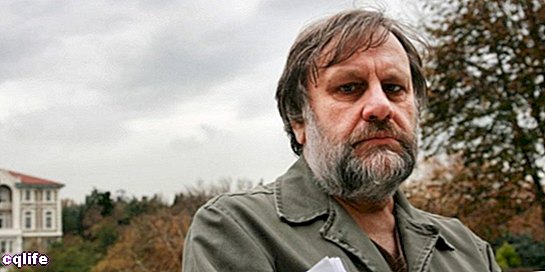- What is Philosophy?
- Origin of philosophy
- What is philosophy for?
- Branches of philosophy
- Importance of philosophy
- Philosophy and science
We explain what philosophy is, its origin, branches and what it is for. Also, why it is important and its relation to science.
Philosophers have been reflecting on morality, beauty and existence itself since ancient times.What is Philosophy?
From a contemporary point of view, philosophy is a kind of science mother from which almost all the disciplines specialized that we know today. It focuses its interests on reflection, specifically on topics such as moral, the beauty, the experience, the language and the existence herself.
Its name comes from the Greek words filein ("Love") and Sofia ("Wisdom"), we would have to conclude that it is about the love of knowing, the passion to understand, or something similar. It is impossible to understand what philosophy is without taking into account its origins, its history particular and the place it still occupies in the contemporary world.
It is almost easier to say what philosophy is not, for example, its particular search for wisdom is much broader (as well as profound and transcendental) than that of the Sciences, especially the applied ones.
It is also different from the search proposed by the religion, since the latter is based on faith, while philosophy does so on human reason. It also moves away from esotericism, occultism and pseudosciences in that it works with verifiable, logical, organized and legitimate knowledge.
However, since philosophical fields of study are so broad, they tend to coincide with those of many other disciplines; but at the same time philosophy transcends them. Broadly speaking, it is a knowledge about knowledge, that is, it is thought on the thought itself and on the human being capable of producing it.
Origin of philosophy
Philosophy is tremendously ancient: its origins must be traced back to Classic Greece, around the 5th century BC. It is said that it was invented by the ancient mathematician and thinker Pythagoras (c. 569-c. 475 BC), who when questioned by the Spartan king Leonidas as to whether he really considered himself a sage, humbly replied that rather he was a "lover" or "seeker" of wisdom (philosopher).
Pythagoras himself defined philosophers as a third type of persons, different from those who like to act and gain recognition, and also from those who like to trade and earn profit. On the contrary, the philosophers only aspired to observe and understand.
So did the first great Western philosophers, such as Socrates (470-399 BC), Plato (c. 427-347) and Artistotle (384-322 BC). In addition, they marked a fundamental milestone in the thought that the later Roman Empire would inherit and transmit to all Europe.
Other important names are those of Anaxagoras, Democritus, Diogenes Laertius, Heraclitus, Thales of Miletus, and a vast etcetera of Greek and Roman thinkers.
There were also important philosophers of eastern antiquity, in Asia and the Middle East, such as Siddharta Guatama (Buddha), Bodhidharma, Chárvaka and Confucius, all founders of important traditions of thought (and sometimes also of religions) in their respective countries. cultures.
What is philosophy for?

We tend to think that philosophy is a matter of the past, akin to history, or that it was completely displaced by science and is now worthless. This is partly due to the triumph of a pragmatic and utilitarian model of thought in the world, which values things according to their immediate and practical application.
However, nothing could be further from the truth: philosophy is the great tool of the human being, the one that allows him to understand the paths that thought takes and to anticipate them. In addition, it recognizes the dilemmas and problems that characterize each historical moment that lives.
In the peak moments of humanity, when they are imposed changes or chaos arises, public opinion turns to the voice of philosophers, to help it think about what is happening: to determine precisely what is the wisest way to do it, or what are the most appropriate thought dynamics and what better results will yield in the long run.
Branches of philosophy
Philosophy, like all sciences, comprises various branches, such as:
- Metaphysics. It focuses on the study of reality: its nature, its structure, its components and fundamental principles. Some of the fundamental notions with which we understand the world come from a particular metaphysical tradition.
- Gnoseology. Also known as theory of knowledge, studies the different forms of knowledge and the dynamics through which knowledge is achieved, focused on the very way in which knowledge is constructed.
- Logic. Dedicated to the study of the formal and rational procedures of thought, the demonstration and the inference, by means of which they can be obtained conclusions from premises.
- Ethics. It is dedicated to the study of morals, virtue, duty, happiness and the codes of human behavior, to somehow find the place of the human being in the world.
- Esthetic. It is the branch that studies the concept of beauty and beauty, trying to find its meaning and its modes of determination.
- Political philosophy. It is dedicated to the theoretical study of the relationships between human beings in society: the can, political structures, government, etc.
- Philosophy of language. Study language as a phenomenon: what it is, what its nature is and what it represents for humanity. All this through non-empirical methods, which distinguishes it from the linguistics.
Importance of philosophy

Philosophy is one of the longest-standing disciplines in human history. Its importance is not exclusive to the humanities and scholars of the art or history. Its proliferation of branches and specializations allows it to think about the dilemmas of the contemporary human being and to apply itself to different areas of knowledge.
It represents the possibility of thinking about the way we are changing the world, that is, the way we are changing ourselves and, at the same time, the way we are thinking about it. Philosophy is a mirror in which to look at ourselves to know who we are.
Philosophy and science
The emergence of science in the sixteenth century forever changed the way of thinking of the West and the world, ending both the ancient forms of philosophy and medieval religious faith. This is the foundational feature of the modern world. However, this does not mean that scientific discourse prevents the existence of philosophy, far from it.
Currently, the relationship between the two is understood from two points of view:
- Scientific philosophy. That takes as a reference the findings of science and is dedicated to thinking about the way in which they are produced, the way in which the scientific thought evolves, and thus constitutes an appendix of knowledge organized by the modern sciences.
- The speculative philosophy. That remains free from any bondage with respect to the scientific knowledge, and those of any other form of knowledge, depending solely on their own life.
